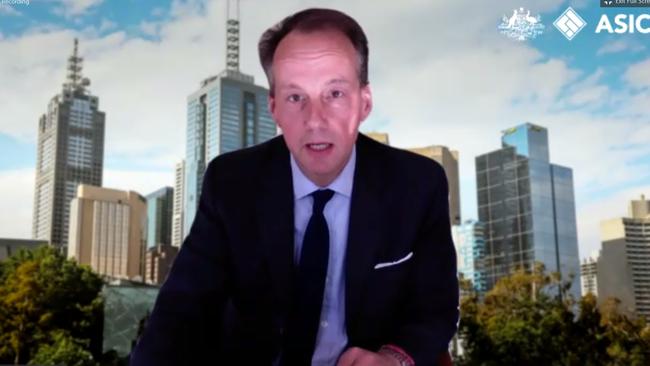Corporate regulator ASIC sets out strategic priorities for tackling bad behaviour through COVID-19
Consumer protection front and centre in its latest corporate plan of top priorities through the COVID-19 pandemic.

The corporate regulator will this month provide further guidance on how it intends to use its product intervention powers as it set out its top priorities for tackling the challenges presented by the COVID-19 pandemic, including protecting consumers from harm at a time of heightened vulnerability.
The Australian Securities and Investments Commission on Thursday released a revised timetable of its ongoing work including its action on corporate governance practises, best interest obligations and regulation of buy now, pay later services, after it was earlier this year forced to suspend a number of non-critical activities as the severity of the COVID-19 pandemic began to emerge.
The regulator in March and April flagged delays on consultations, regulatory reports and reviews of issues it deemed were not time-critical in light of the coronavirus crisis, such as executive remuneration, internal dispute resolution guidance and a consultation paper on managed discretionary accounts.
Publishing its interim corporate plan for 2020-2021 alongside the revised timetable on Thursday, ASIC detailed its five priorities through the pandemic: protecting consumers from harm at a time of heightened vulnerability; maintaining financial system resilience and stability; supporting Australian businesses to respond to the effects of COVID-19; continuing to identify, disrupt and take enforcement action against the most harmful conduct, and continuing to build its organisational capacity in challenging times.
‘The priorities identified in this corporate plan enable us to focus on activities that directly address the needs of consumers and firms as they respond to COVID-19,’ ASIC chair James Shipton said.
Staff redeployed
The regulator has already redeployed staff to address issues of immediate concern, including setting up three ASIC-wide working groups to focus on scams, false and misleading advertising, and unlicensed advice.
“We have also expanded our market supervision work to support the fair and orderly operation of markets and ensure investors are appropriately informed,” ASIC said.
As part of its revised timetable, ASIC will this month provide corporates with information that it says will help boards with the governance of executive variable pay decisions during the pandemic.
It will also publish a regulatory guide on how it will use its product intervention powers. This power provides ASIC with the ability to ban certain financial products if they are found to cause significant detriment to the public.
The regulator will also in the coming weeks publish a new guide for mortgage brokers on their best interest obligations. The mortgage broker best interest duty is due to come into force on January 1, 2021.
ASIC has also firmed up its timetable for consultations, revealing that it will consult on its remediation policy in the third quarter of the calendar year, while the consultation process on internal dispute resolution data collection and reporting will also be in focus in the third quarter.
A report on buy now, pay later services will be released in the third quarter, it said.
Recommendations from the financial services royal commission, meanwhile, including on hawking prohibitions and breach reporting, won’t be consulted on until the end of the year, ASIC revealed.
Its onsite supervisory work, however, including its Close and Continuous Monitoring Program, is still on hold, as businesses around the country continue to work remotely. The regulator said it would use established working arrangements with senior executives to both supervise and support firms, as well as monitor their actions remotely.







To join the conversation, please log in. Don't have an account? Register
Join the conversation, you are commenting as Logout